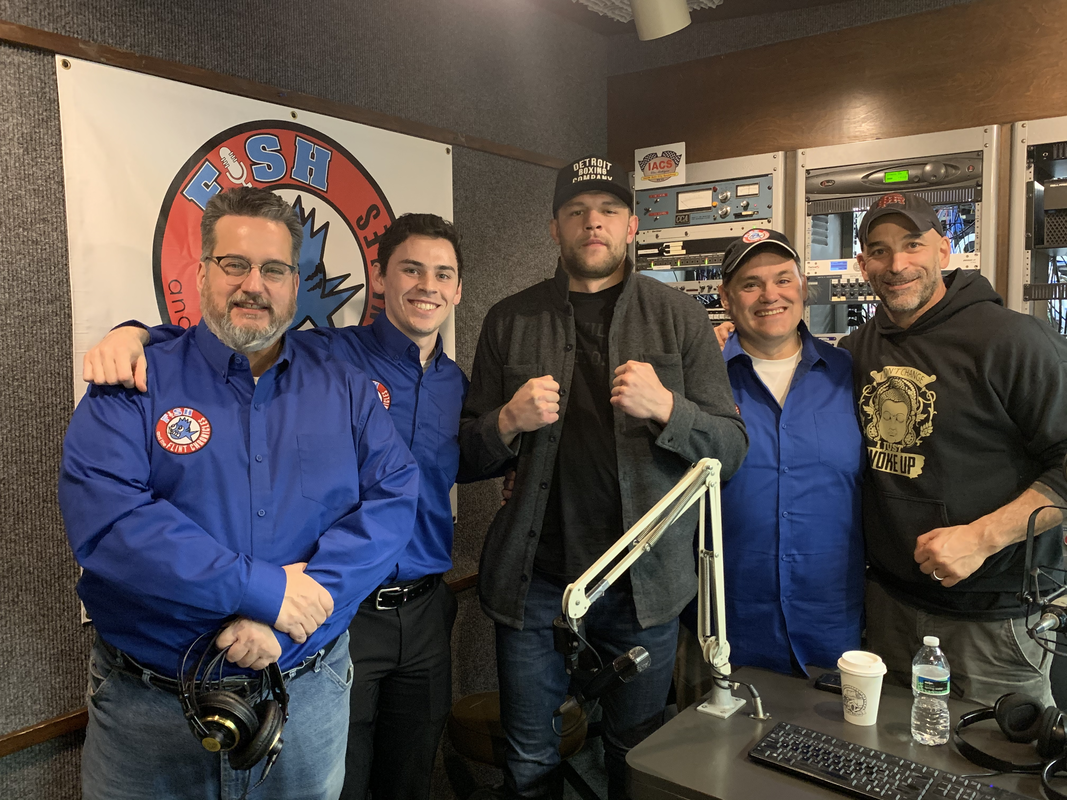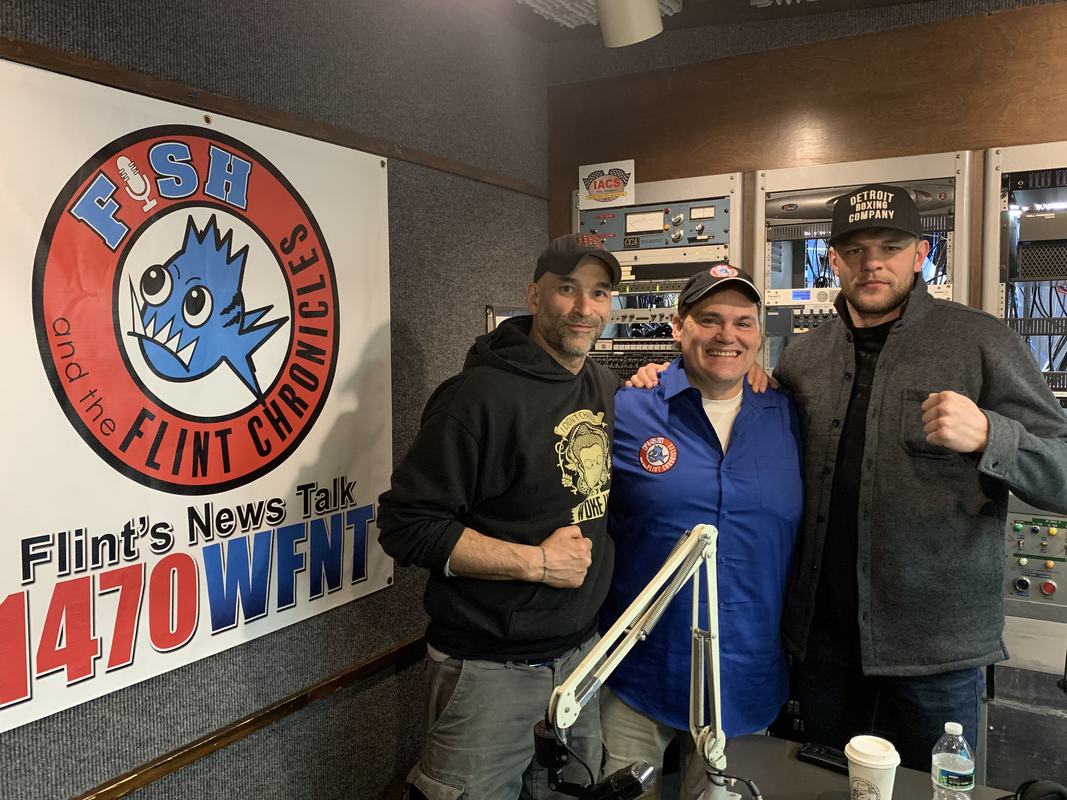ShowsTaylor "Machine Gun" Duerr
Detroit Champion Boxer World Title Contender January 22, 2020 Taylor is a champion. Yet, he's no ordinary champion. Sure, he's a boxing national title holder, and he has his sights set on a WBC World Title, currently ranked 13th in the world. But his fight is a lot bigger than that.
Taylor is a heroin addict. In fact, he's a already won the battle that few will ever win - he beat death. Not once, not twice, not thrice, but four times. Four times his heart has stopped beating from a heroin overdose. Four times he was clinically dead. Four times he was brought back to life. He has no fear in the ring, because as he puts it, he's "...already beaten death, and what's scarier than that?" Not only is this unlikely scenario part of his story, it's also part of a larger story of opioid addiction in America. It's a story that's been largely put on the back burner, time and again. There is always something more pressing, more urgent, more critical to the national dialogue than the opioid crisis. 2018 data shows that every day, 128 people in the United States die after overdosing on opioids. The misuse of and addiction to opioids—including prescription pain relievers, heroin, and synthetic opioids such as fentanyl—is a serious national crisis that affects public health as well as social and economic welfare. The Centers for Disease Control and Prevention estimates that the total "economic burden" of prescription opioid misuse alone in the United States is $78.5 billion a year, including the costs of healthcare, lost productivity, addiction treatment, and criminal justice involvement. From 1999–2018, an incomprehensible 450,000 people died from an overdose involving an opioid, including prescription and illicit opioids. Duerr has lost more friends from this scourge than most can grasp. It just isn't part of the normal human experience for most young, fit, athletic Americans. It's completely aberrant, except for those addicted or whom care for people who are. For them, it's just a typical circumstance. That’s an appallingly common tale that is told with consistent regularity among those who grapple with opioid addiction. In this episode, Duerr joins Fish and the crew to tell his story, and to offer hope and encouragement to those struggling, or have family or friends facing down an addiction. He's on a mission to let people know that there is a light at the end of the tunnel, and it doesn't have to be a train. The reality is that the fight never ends for himself or others in the clutch of opioids. It respects neither race or class, age or fitness. Left unchecked it will kill you. It will ruin the lives of those who love you the most. To further publicize the depth and breadth of the crisis, Duerr’s life is being documented in an upcoming film by acclaimed filmmaker, Michael Ramsdell. The film, titled ‘We Can Be Heroes,” is near completion. Duerr hopes it will further awareness, and offer some real solutions, sympathy and understanding that can lead to change. In a world of heroes, there can be no greater heroic act than to salvage the life of someone you don't even know. Whether or not Taylor becomes a World Boxing Champion remains to be seen, but in telling his story, and living to fight this fight another day, he can do just that. In the end, a hero is as a hero does. We can all be heroes in this battle by taking action and helping where we can. Hopefully, this episode of "Fish and The Flint Chronicles" can reach at least one person currently in the ring with this killer, and make a difference. Here's a link to more information and assistance in Michigan: https://www.mha.org/Issues-Advocacy/Opioid-Epidemic#Patients |
Sponsored by:
In association with:
|




